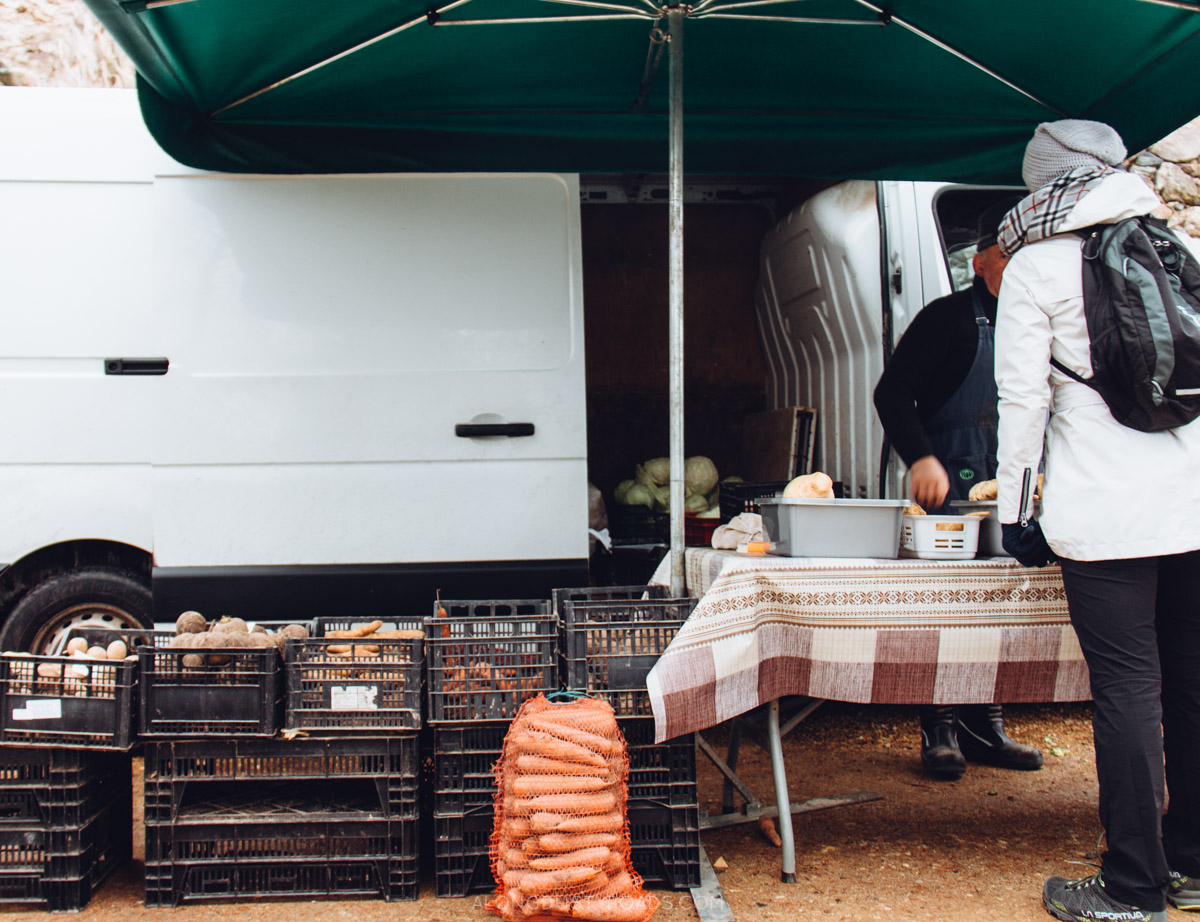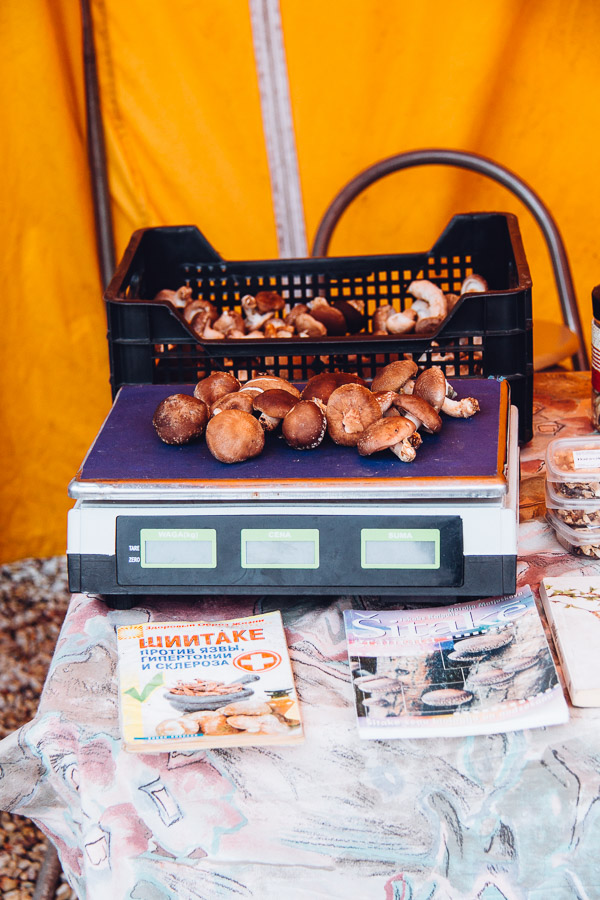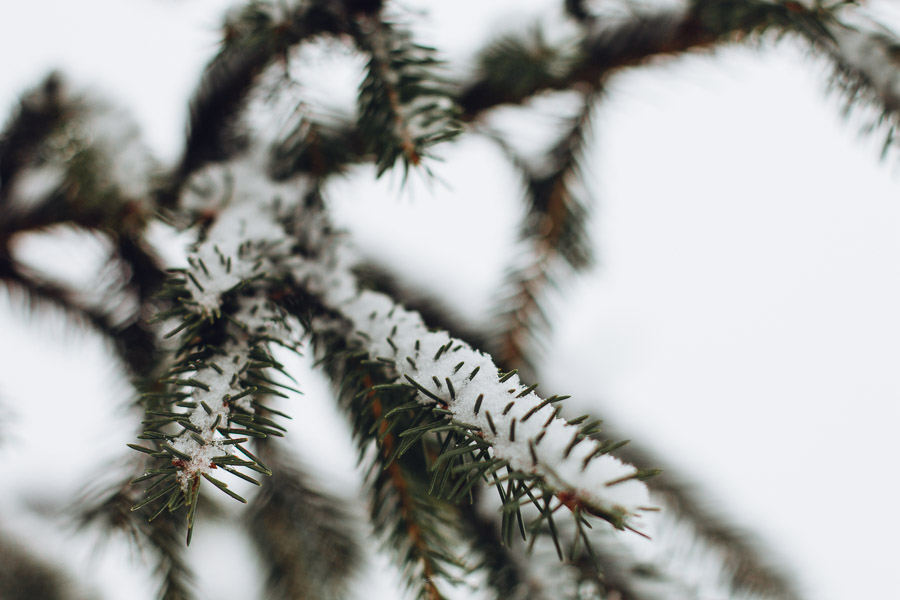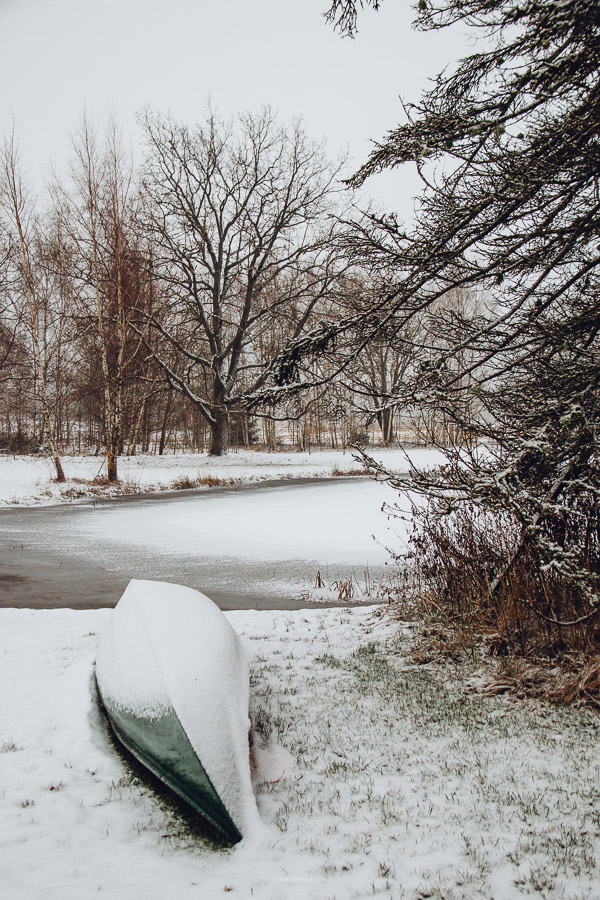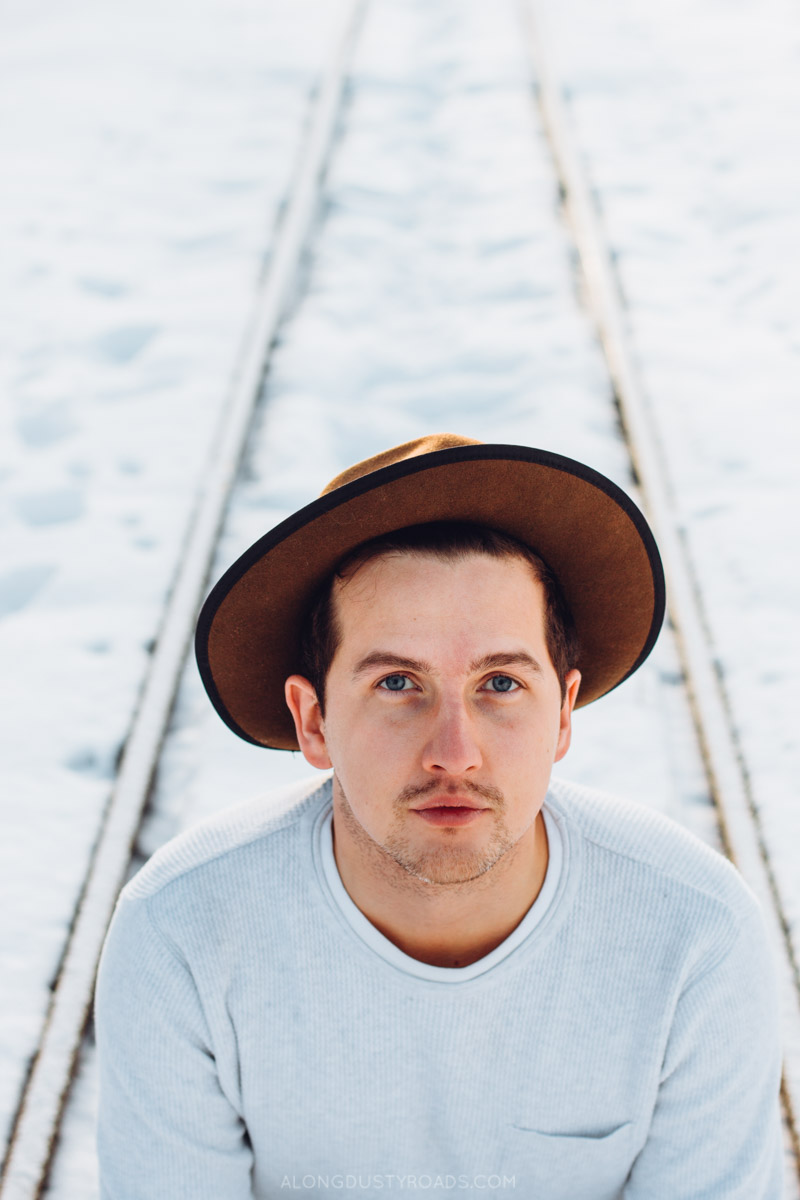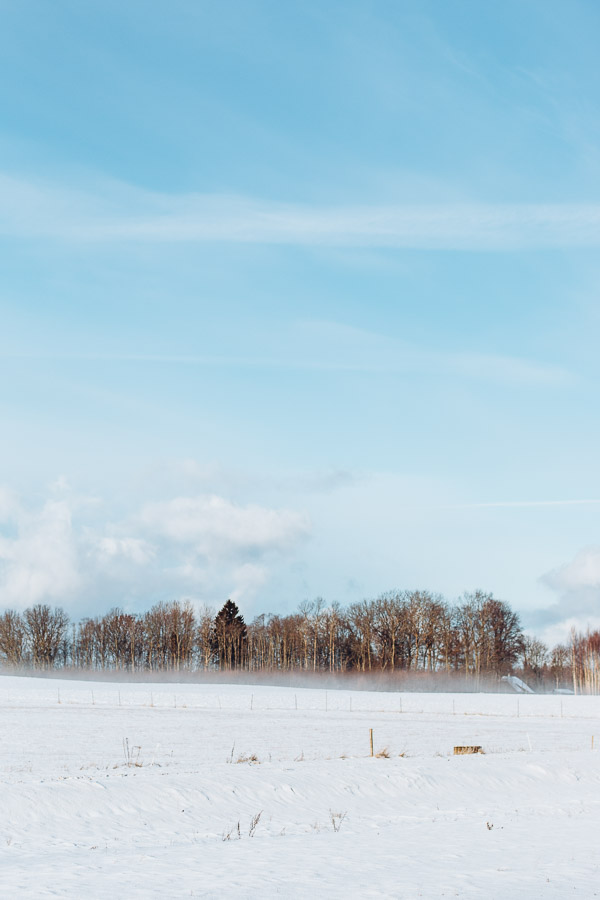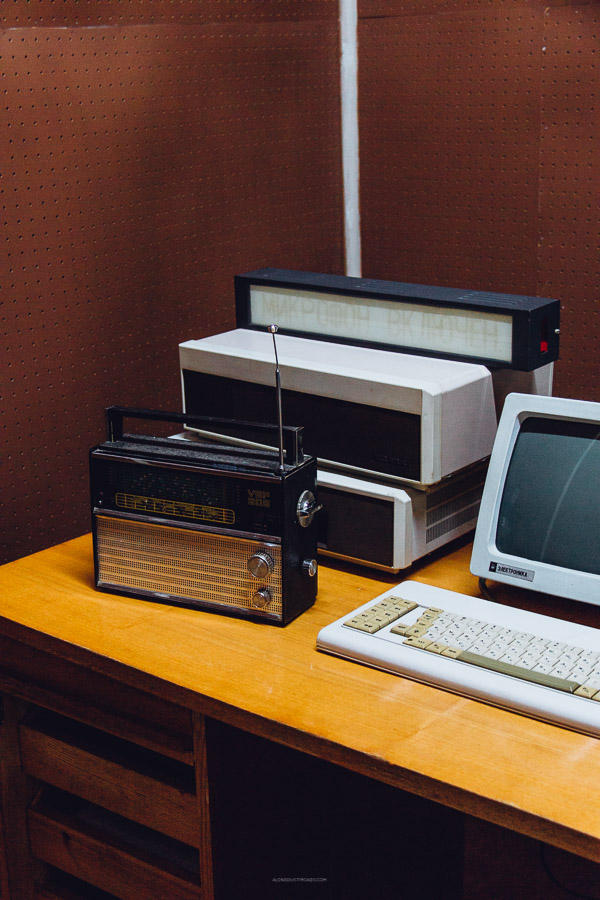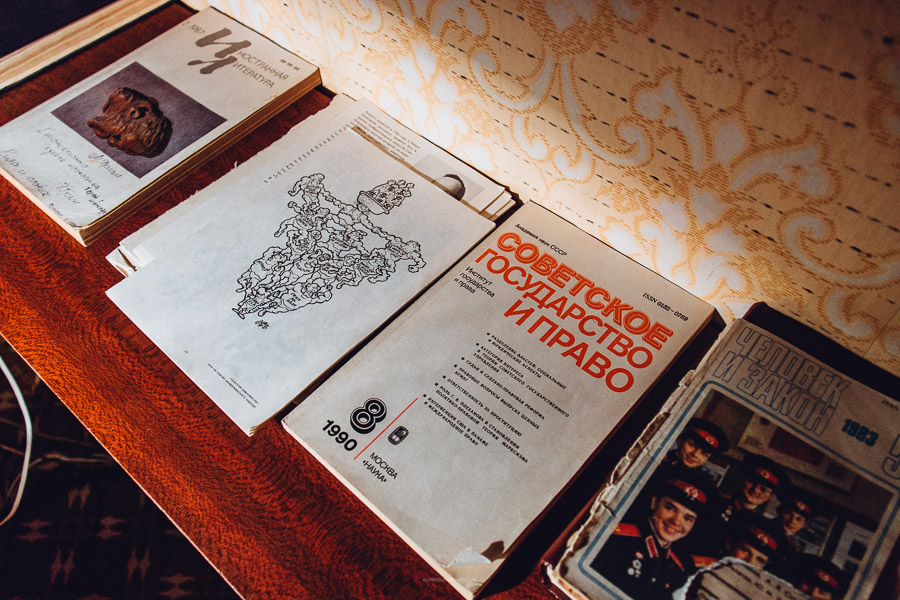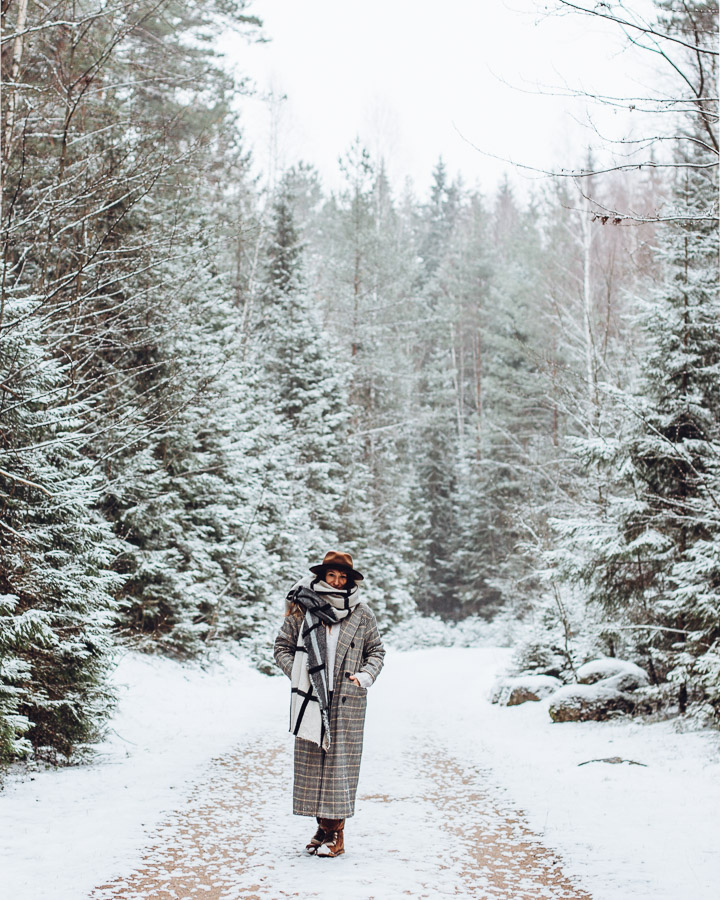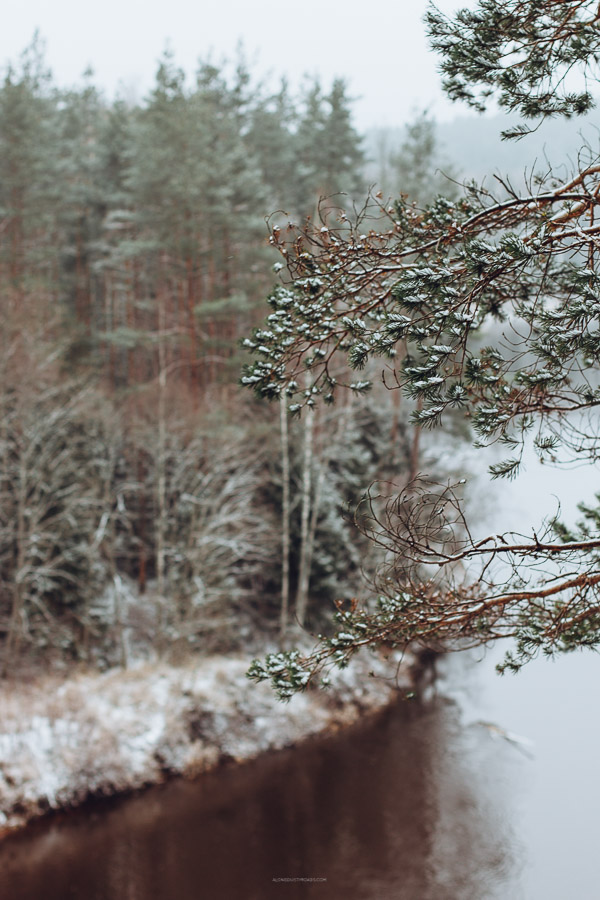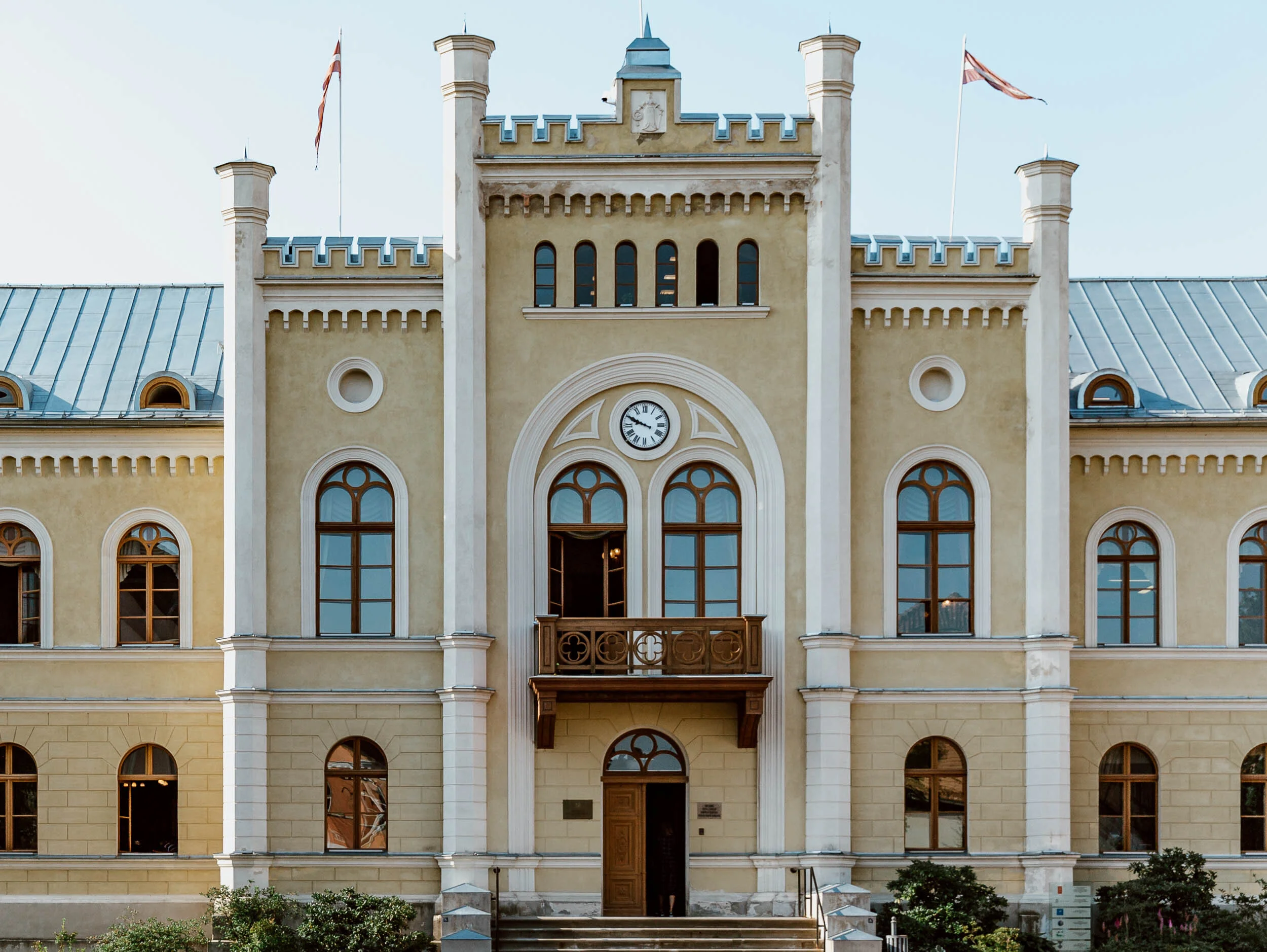What did we know about Latvia? In all honesty, shamefully little.
Andrew's interest in sport meant he was aware of an average Premier League footballer from the late 90's and some tennis players (one of whom, Ernest Gulbis, would be a fantastic name for a pet cat). We knew the capital was Riga, what the flag looked like, that Latvia was in the European Union and in the Baltics, and that, as with much of Eastern Europe, it once formed part of the Soviet Union.
Other than that, Latvia was a little bit of a mystery.
But, our interested was piqued by a fantastically original semi-viral video ad campaign about Riga. And, some more research made Latvia feel like a little part of Europe that, with overtourism being such a key concern in 2017, felt relatively undiscovered.
So, naturally, it made perfect sense for us to head over there in the middle of winter to take a road trip through the Latvian countryside.
From a starting point of relative ignorance, it meant that we were literally stepping (or driving) into the unknown.
“The powerful have always hated it because it’s like a miracle plant. You can eat it, wear it, smoke it, drink it, build with it, and even heal with it.”
Our first full day of driving has brought us to a small market on the outskirts of a town which doesn't really feel like it should be called a town. An elderly couple, perched on the edge of their beaten up car's boot, stoically face the cold as they await more interest in the hotch-potch of reused jars and bottles in front of them, each home to curiously coloured liquids, jams and pickles.
Straupe's SlowFood Market, an hour or so from Riga, takes places two Sundays each month - and it's clearly popular. The muddy car park is full and trade is brisk. It's formed of two parts - indoors is an old stone building, there is warmth, steam from soups and families fill the wooden tables bringing life back to fingers and reddened cheeks. But, most of the stalls - temporary and slight - are outside in the bitter winter cold.
A man is selling vegetables from his vintage white van, whilst stony-faced women under the pink, yellow and blue tarpaulin arrange trinkets and crafts on the tables before them. Thick knitted socks, wooden ornaments and rough clay crockery. A man with mismatched black sideburns plays the accordion on a bench, his fingers warmed by a nearby open-fire barbecue in a metal cylinder. Officially part of the market or a quickly jigged together contraption to make lunch and give heat, we're not sure.
Lingering over free samples and small smiles, we are treated to a DIY crash course in Latvian food amongst families stockpiling their Christmas treats. Rye bread is clearly not a health food store preference here, as it tends to be in the UK, but the go-to choice for the table, and here amongst the displays of cheeses, lingon berries, seeds, pickled stuffs and sweet little ginger biscuits, we try a bit of everything.
A young man in a brown apron, picking up on our politely fumbled attempts at the four Latvian words we've learned on our flight from London, can clearly tell we aren't local. In perfect English, with a slightly West Coast US lilt, he encourages us to try out some of the samples from the smalls jars of of pestos, oils, seeds, butters and thick pastes laid out before him.
Neither of us can quite say what the distinctive, slightly bitter taste is.
Kanepju, the phrase on several of the labels, transpires to be hemp. We're told that it's been an ingredient in traditional Latvian cooking, popular during June's Midsummer's day celebrations, and, contrary to our initial thoughts, is commonplace on breakfast tables throughout the country. Apparently, it's exceptionally good for your cholesterol.
With an eclectic selection of local foods in our canvas bag (including an obnoxiously large supply of dried lingon berries neither of us are entirely sure we will ever get through), we shared a quiet paldies to some of the stall holders as we left.
A thank you for giving us our first taste of Latvia.
“It’s beginning to look a lot like Christmas...”
We were the only guests that night, alone in a guesthouse in the middle of nowhere.
There is something thrilling that, off the back of a recommendation, some e-mail exchanges and a star on Google Maps, you will happily wander down a country road in pitch black without fear or trepidation, never quite knowing what will await your weary soul.
Inside, a fire crackled and the air smelled of a homely confluence of pine, ginger, cinnamon and smoke; "it smells like Christmas" whispered Emily over the melodic lilt of Dean Martin professing what we knew only too well already "but Baby it's cold outside..." In our fluffy socks and jumpers, we ate a home cooked vegetarian meal from pumpkins, accompanied by the darkest of Latvian beers and sat in a comforting silence staring at the flames.
The next morning, upon opening the curtains in our second floor bedroom, Emily's face reflected a child-like joy.
Yesterday's ballooned grey clouds had finally succumbed - winter was here. Our countryside hideaway was now a blank canvas of thick white eastern snow. A lake was frozen. The wild Christmas trees were dusted with icing sugar powder.
"Let it snow, let it snow, let is now".
We had left the UK not feeling terribly festive. Bublé, Mariah and George Michael had been playing, but the Christmas spirit wasn't quite there.
Latvia had given us a perfect morning playing together in the snow.
Latvia had given us Christmas.
“Latvian Light”
The days were short for us in Latvia.
This wasn't a surprise given the time of year we were travelling, and so we structured our three days around making the most of the available light. Getting up early - when it was still dark - and staying outdoors as much as possible. Retiring to the welcoming warmth of our car only when we had no other option.
When something is in short supply, you appreciate it all the more. Abundance makes one complacent.
Latvia may not have given us more than 18 hours daylight on our entire road trip, but the light it did bestow upon us in those short winter days was heaven sent; its golden hour, reflecting on the fresh dusting of snowfall, was remarkable.
On our last evening, we stopped at the roadside a couple of miles from our guesthouse and shared sips from a bottle of local beer. Perching on the bonnet, we watched the last remnants of light be swallowed by clouds of darkness.
It was time to head inside.
“In Soviet Latvia, you knew there was something important and political nearby if you were on an tarmac road.”
We couldn't find it.
That shouldn't come as a surprise when you're elusively driving in search of something called 'The Secret Soviet Bunker'. Our red rental took three wrong turnings, ended up at some abandoned buildings, circled around, and pulled in and out of a sparsely populated parking lot.
"But Google Maps says it's here, so it must be here."
There were two men in black smoking by a bench. We nodded hello and passed cautiously through the automatic sliding doors.
"We have been waiting for you" said the receptionist. We are, on the face of it, in a hospital which looks like hotel, or a hotel which looks like a hospital. A portly man with bottletop thick spectacles, a patterned blue and white jumper, and ginger mutton chops approaches. Speaking with a clipped English accent - as though learned on childhood evenings listening to dispatches on the BBC World Service and interviews with Bertrand Russell - he asks for our credentials, for our passports. Why are we in Latvia? Why do we want to see the bunker?
We can't read him. Unsure if it's an act or his actual demeanour, Andrew laughs uncomfortably and Emily bristles.
This man was, after all to be responsible for bringing us, and only us, five metres underground. For the next hour and a half, the three of us would be out of reach, out of sight, and out of mind as we saw plans for the end of the world.
And the only person who knew they way out was Oscar.
Coming from the side of the Iron Curtain where democracy trumped dictatorship, there is a natural curiosity with all things Soviet.
However, when in the countries that once were occupied, one must always be cautious of an overly voyeuristic focus on their past at the cost of supporting their present and future. From our travels in eastern Europe in 2017 though, it's clear that it remains a big tourist draw.
Take, for example, this very bunker. Once the designated hideaway and nuclear shelter for Latvia's governmental elite, this rabbit warren of hidden rooms so many feet below ground has been preserved perfectly, as if the fall of the Soviet Union never happened. Desktop computers from the 1980's, the remarkable 'Map Room', vintage calendars, and Russian propaganda.
Oscar, it transpires, has a caustic humour and burning intelligence. He was quite possibly the best guide we've had and his act - flipping between stern Soviet apparatchik and charming tour guide - kept us equally unsettled and entertained. Leading us from room to room, he shared the mundanities of everyday bunker life, and regalled us with tales of life and times in Soviet Latvia, a period of history he still remembers well.
We took the tarmac road out under cover of darkness. The bunker was a time capsule to the country's past, and we had much of the new Latvia to uncover in the light of the next day.
“What’s the hat for?”
It was an odd experience.
But then, any experience that involves a half naked middle-aged Latvian man, a frightfully hot sauna, birch branches and two slightly nervous (and equally as naked) Brits is going to be a little unusual.
And it all started with a hat.
Our final night before departing for Riga was spent in a small and empty country guesthouse. A guesthouse, we discovered, that was rather specialised in the local practice of sauna. It seemed only fitting then that on the coldest of nights, we were to warm up amongst Latvian pine.
Led across a blanket of snow by our delightful hostess, we were directed into the spa, shown where to change, and given a hat. A coarse woollen cap no less, whose aim it transpired was to keep our heads (an more importantly) our brains cool when the rest of our body was screaming for an ice-bath.
After spending a short while lounging across wooden benches in the small but perfectly formed sauna, the guesthouse owner and his assistant entered and began to soak the birch branches in warm water, the smell of the peppermint forest rising up through the air.
With the trepidation one might expect from a man naked below his towel, Andrew volunteered to go first. Minutes passed, the only sound emanating from the sauna a thwack, thwack, thwack as wet leaves came into contact with sweating flesh.
Alternating between a cocoon like calm, wrapped in a blanket in the spa and a vigorous beating in the sweltering heat, it was almost a relief to be finished. That is until we were directed to the frigid waters of the ice cold pool.
Legs, torso and eventually head, we slowly submerged our bodies below the surface, to come up as if reborn.
The next morning we were congratulated on our efforts. Apparently Brits, a prudish bunch, rarely make it through an entire treatment.
Would we do it again? We're not entirely sure. One thing's for certain however; there are surely few truer Latvian experiences.
“How do you say that?”
We drove down narrow tracks and through snowstorms to find the trails which weaved and criss-crossed through Gauja National Park. Trails and viewpoints with names we couldn't pronounce or tie our tongues around.
Līču Laņģu grava. Sietiņiezis. Ērgļu
We weren't too hard on ourselves.
These trails of cramped consonants however, led us to fairytale forests, untrodden paths, reflections on inky black water and stolen moments of silence and solitude which one would not find for love nor money elsewhere.
The river flowed. The snow fell. Our limbs stretched. The Latvian countryside beamed.
“Where is everyone?”
We would be lying if we claimed that, outside of our welcoming B&B hosts, Oscar and those market stall holders, that we spoke to many Latvians.
The truth is, that road tripping through a national park, deep in winter days where snow had covered the ground, is not exactly a recipe for making friends with the locals. They are, as we would be, snuggled up indoors by the fire or getting ready for Christmas.
But, apart from that fact, we were both struck by just how empty Latvia was for us.
Each morning, taking on a new nature trail, we would have virgin snow before us. No footprints. No traces. Nobody.
No-one else was with us, no-one else was discovering Latvia.
We had it all to ourselves, and it was perfect.
Our final day, savouring the last of the isolation before taking the coastal route to Riga, provided us with a confirmation we no longer needed.
We were taking back roads towards the ocean, and suddenly the light transformed into soft golden rays. A magical scene unfolded before us, a scene that had to be captured. Pulling over to the side of the potholed icy road, we only imagined we'd get a minute or two before passing traffic altered our plans.
We had twenty.
In perfect silence, the light lingered, a snowfall came and went, we took dozens of photos in a little part of Latvia which felt like ours and ours alone, the only sound the crunch of snow underneath our hiking boots, laughter and the click of a shutter.
“We still know little, but we know a little more than we did before.”
We arrived in Latvia with little idea of this country's past or present.
We left with the taste of rye bread, bodies beaten by birch in a sauna, a sense of its people and its landscapes.
We left with a pledge to return in spring or summer. To hike these same trails and paths once the snow has melted. To drive to the west and the south. To sample the seaside in summer, when the Baltics are less..well... baltic.
Hopefully though, it will still have the light to savour, that splendid isolation and that seductive sense of discovery which only a road trip into the unknown can give.
We may not know all of Latvia, but in those three days where she shared a smattering of her secrets, we know her a little better than before.
Follow Along Dusty Roads on Instagram.

